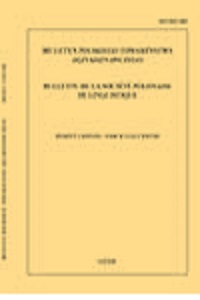Humor średniowieczny w świetle Ogólnej Teorii Humoru Słownego (GTVH) na przykładzie Księgi Dobrej Miłości (1330–1343)
Libro de buen amor: Medieval humour in light of the General Theory of Humour (GTVH)
Author(s): Ewa StalaSubject(s): Cultural history, Semantics, 13th to 14th Centuries
Published by: Polskie Towarzystwo Językoznawcze
Keywords: humour; General Theory of Verbal Humour; Spanish medieval literature; Libro de buen amor;
Summary/Abstract: The aim of the paper is to analyse the humorous aspects of a medieval Spanish text while applying strictly linguistic tools in the study of a literary material. The source of research data is Juan Ruiz’s Libro de buen amor (Book of Good Love), and the methodology used is the so-called General Theory of Verbal Humor (Attardo, Raskin 1991; Attardo 1994), an extension of V. Raskin’s script theory (1985). While a number of studies have dealt with the ironic nature of Libro… (e.g. Menéndez Pelayo 1944; Menéndez Pidal 1958; Ayerbe Chaux 1968; López Castro 2009; Imperiale 2016), there has been no academic out put devoted to the phenomenon of humour in this unequivocally humorous work. The paper shows that a current linguistic theory of humor can be applied sensu stricto to the analysis of this flagship medieval work, and that linguistic tools seen as philological tools can be helpful in the analysis of a medieval text sensu largo. At the same time, we hope that the analysis that follows Attardo’s scheme will allow us to understand in a better way the phenomenon of humor in this masterpiece of Spanish literature and will inspire further research on medieval humor.
Journal: Biuletyn Polskiego Towarzystwa Językoznawczego
- Issue Year: LXXIX/2023
- Issue No: 79
- Page Range: 371-384
- Page Count: 14
- Language: Polish

